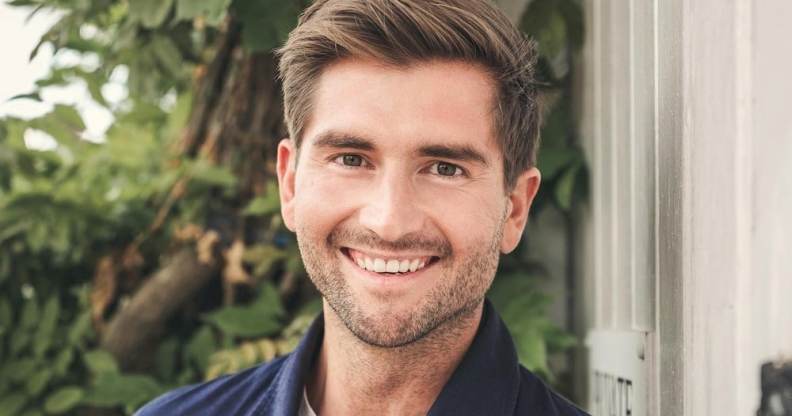How one gay man overcame burnout and shame to build a self-empowerment community

LGBT+ wellbeing advocate Michael Stephens. (Facebook/ Michael Edward Stephens)
When LGBT+ wellbeing advocate Michael Stephens came out as gay, he thought he would “live his best life” and would “never have to hide anything again”.
But instead, he told PinkNews, he “came out of one closet and went into another”, forcing him to reevaluate his career and eventually leading him to found the LGBT+ self-empowerment collective We Create Space.
“I was at what I thought was the pinnacle of my career,” he said.
“I was working for a very prestigious brand in a senior position, and everything looked perfect on the outside. But inside I was I was really struggling.”
He continued: “I just totally ran myself into the ground, I ran out of energy, emotionally, physically, mentally, and I wasn’t able to do my job anymore… It took a burnout, with my body telling me you need to pay attention, for me to actually pay attention.
“It had given me signs up until that point, and I had managed to psychologically evade those.”
Stephens left his job and left London, finally realising that he needed to take care of his mental and physical health.
“I focused on myself, and understanding how I’d got myself into that situation to avoid getting into it again,” he said.
He realised “through months of reading, of trying different therapies, of doing lots of self-help stuff, holistic practices or self-inquiry like journaling”, that he had “never once prioritised” his health and wellbeing.
Although his first goal was to get mentally healthier, he soon realised that his career ambitions “were very much fuelled by fear, and by unprocessed adversity from growing up really believing that I wasn’t worthy”.
“I needed to prove that I had value,” Stephens said, “and to do that, I would seek external validation and recognition. And it became a bit like an addiction, really.”
This experience is not uncommon for LGBT+ folk, Stephens said, as having to constantly fight to be seen as valid can take a huge toll on mental health, self-care and self-empowerment.
He continued: “What we know is that you can’t talk about LGBT+ mental health without talking about trauma and lived experiences.
“The impact that growing up in a heteronormative environment has on us as children, but also as adults as well, is massive.
“When we think about self-empowerment, it’s about how do we achieve our full potential? If we’re not aware of the barriers, whether they be internal or external, that are stopping us from reaching our full potential, then we’re never going to be able to get there.”
That’s where Stephens’ change of career comes in. Having worked through his own shame surrounding his mental health, including a decade-long eating disorder, he wanted to help others to do the same by becoming an advocate for LGBT+ wellbeing.
He started by creating a two-day retreat programme called “Who Am I?” at the very beginning of the COVID-19 pandemic, which was a resounding success.
From there he developed further leadership programmes and workshops and eventually found himself part of a community with “one common goal, which was to understand us ourselves better, so that we can have a greater impact in the world”.
This led him to found We Create Space, “a self-empowerment platform for LGBT+ change-makers and professionals”.
“It’s become a global community, we’ve now got about 5,000 active members, and we host free workshops each month,” Stephens said.
We Create Space also runs a podcast on queer self-empowerment, and provides LGBT+ wellbeing workshops for university students.
Stephens said: “What I need was for someone to tell me that I’m enough… I went through this journey of re-discovery that actually became more of a journey of liberation.
“Through discarding all these facades and these layers that I’d accumulated, which were actually kind of like my armour, it was just so freeing… I wanted to share that with other people.”
“It was around this idea of building courage within the community,” he added.
“Not everyone has the opportunity to come out, but we also find ourselves coming out all the time, whether it’s having to restate your sexual identity, or whether it’s around mental health.
“That requires courage and bravery. It’s something that the community struggles with, because it poses this real threat of rejection, and that fear can sometimes stop us from reaching for our goals and our dreams.
“So if I can just help one person with going for their dream, then that makes a big difference for me.”

